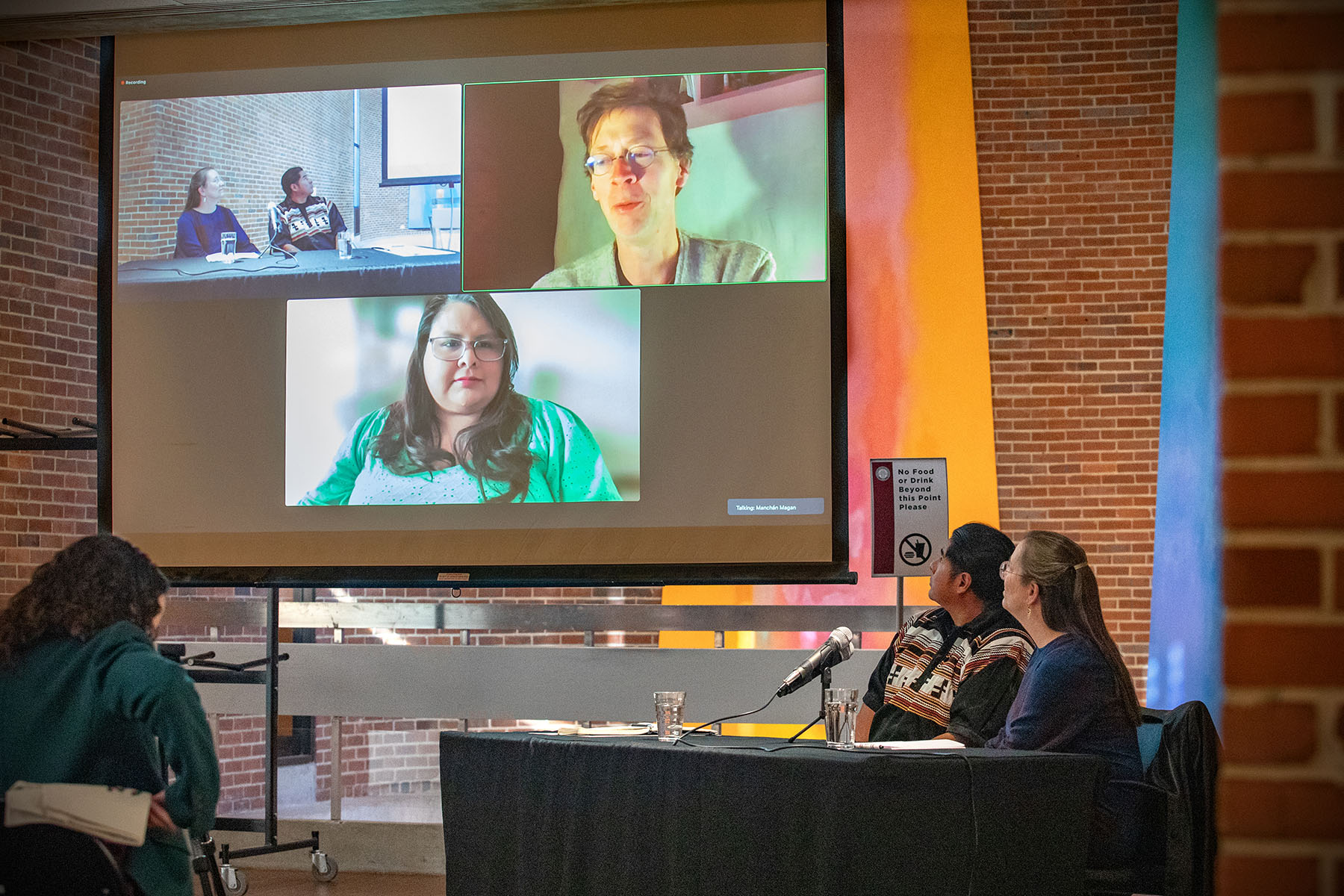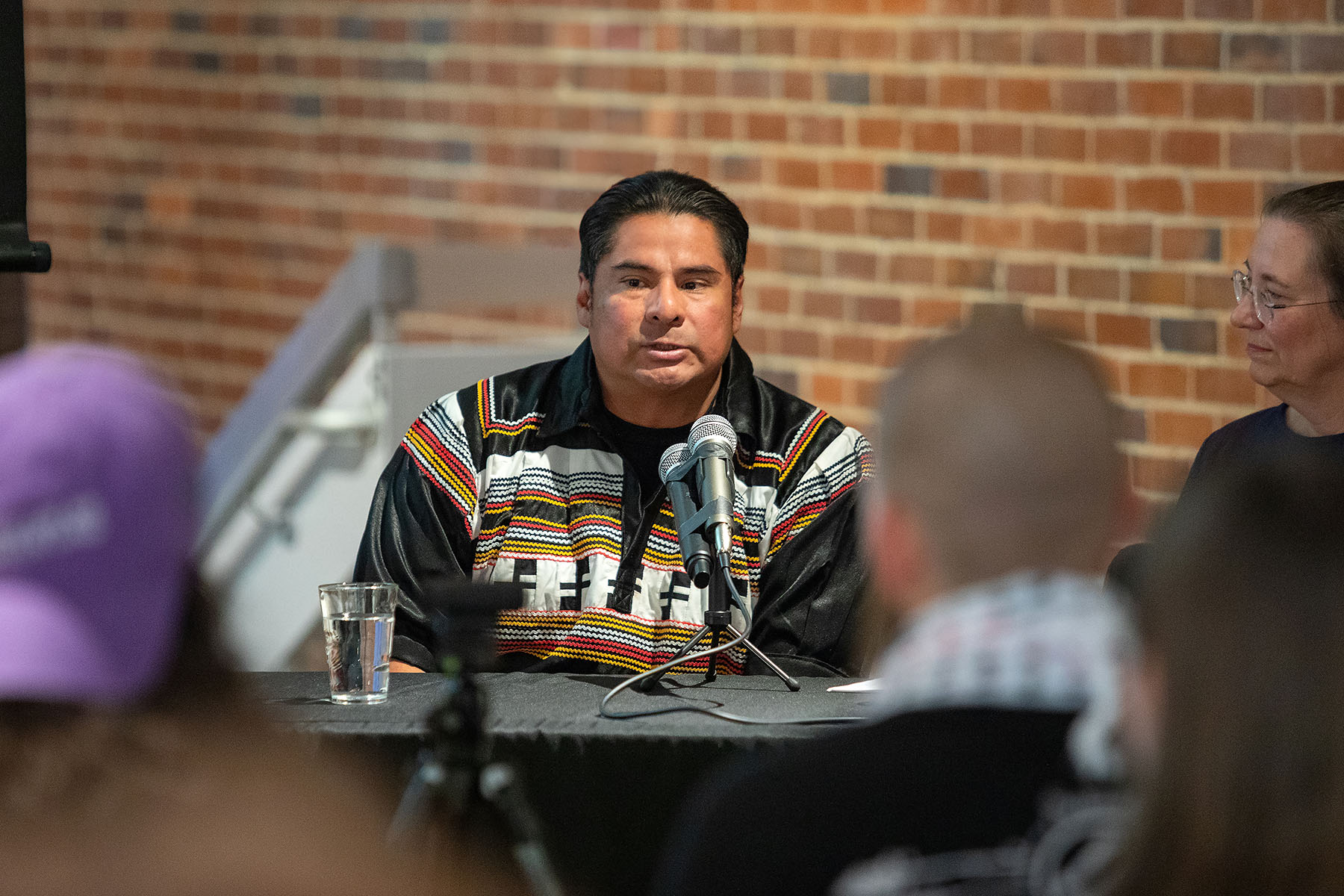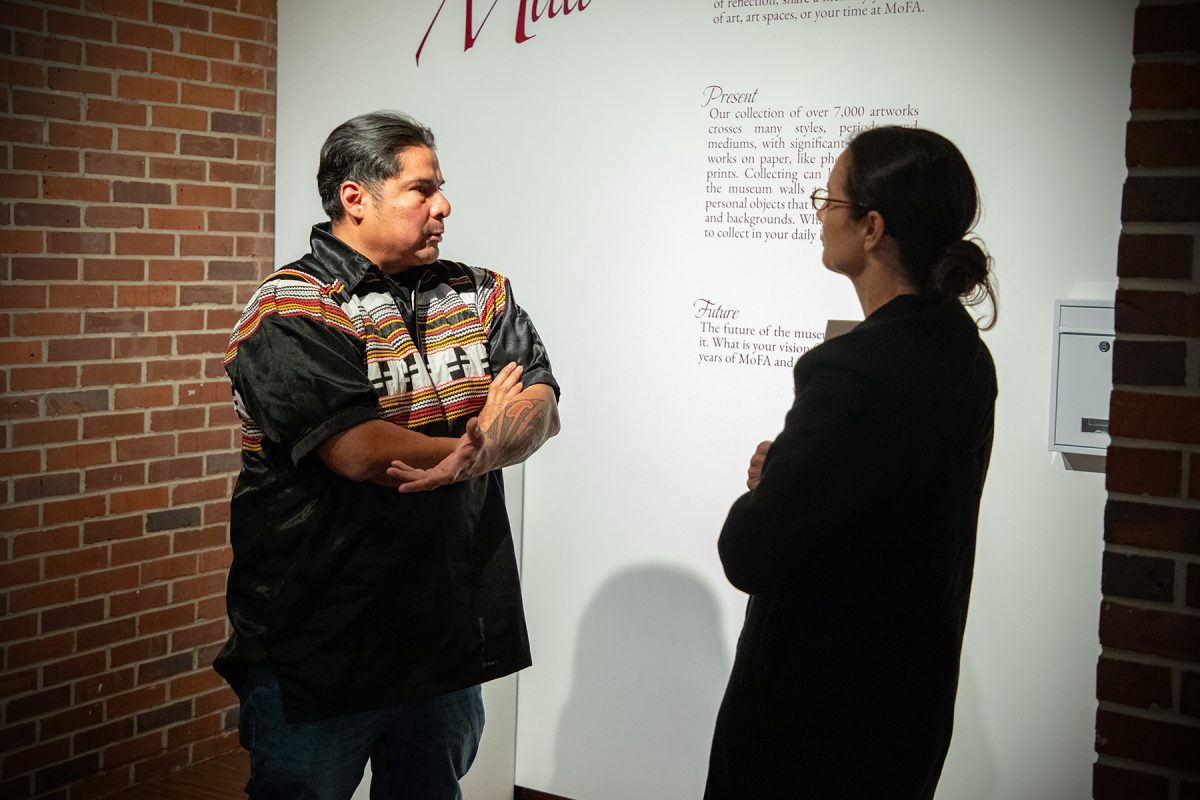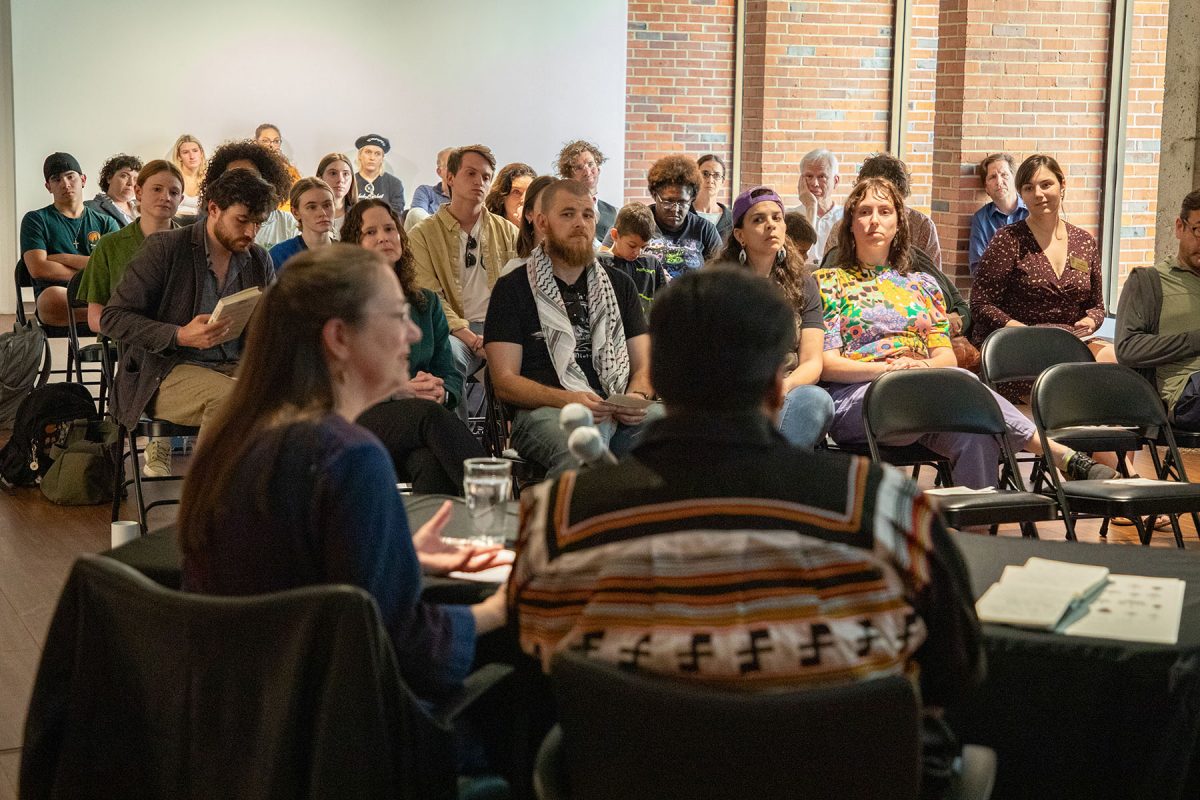
Florida State University’s College of Fine Arts and Native and Indigenous Studies Center hosted a panel Thursday, March 28, where experts discussed the challenges of preserving and revitalizing Indigenous languages.
“Let All Languages Live: Celebrating Language Revitalization” featured Manchán Magan, a native Irish speaker, writer and documentary filmmaker; Everett Osceola, cultural ambassador of the Seminole Tribe of Florida and Mvskoke speaker; and Jennifer Johnson, citizen of the Seminole Nation of Oklahoma and co-founder of their language immersion school.
The hybrid panel discussion, hosted both online and in-person at FSU’s Museum of Fine Arts, was moderated by Mary Linn, curator of language and cultural vitality at the Smithsonian Center for Folklife and Cultural Heritage. All panelists are leaders at the forefront of innovative strategies to support language reclamation in their communities.
“People’s identities are so deeply connected to language,” said Kristin Dowell, associate professor of art history. “The more we can support and learn about language revitalization happening around the globe, I think the stronger all of our knowledge and cultural heritage becomes.”
“Let All Languages Live” is part of a series of events associated with FSU’s Museum of Fine Arts exhibition “Talamh agus Teanga: Land and Language in Contemporary Irish Art,” curated by Dowell. The panel discussed the parallels and key differences between the challenges facing the Irish language in Ireland and Indigenous languages in North America, such as Seminole languages.
“It was fascinating to hear how speakers of Irish and Seminole speakers in Oklahoma and in Florida share with each other and the audience their thoughts about how their language shapes their understanding of their place in the world,” said Andrew Frank, the Allen Morris Professor of History and founding director of the Native American and Indigenous Studies Center. “I was particularly interested in their emphasis on teaching the youth, as they are best situated to bring new meanings to old words and new words into creation.”
Of the roughly 7,000 languages spoken today, half could disappear by the end of the century, according to UNESCO. The intersection of “Let All Languages Live” and “Talamh agus Teanga” is part of larger efforts happening across campus to deepen FSU’s connections to the Seminole Tribe of Florida.
“This panel discussion is an opportunity to showcase the language work happening with the Seminole Tribe of Florida and the Seminole Nation of Oklahoma and to celebrate the work that Indigenous language speakers are doing to keep these vital and dynamic languages alive,” Dowell said.
“Talamh agus Teanga: Land and Language in Contemporary Irish Art” will be on display at the FSU Museum of Fine Arts until May 18.
For more information, visit mofa.fsu.edu.






